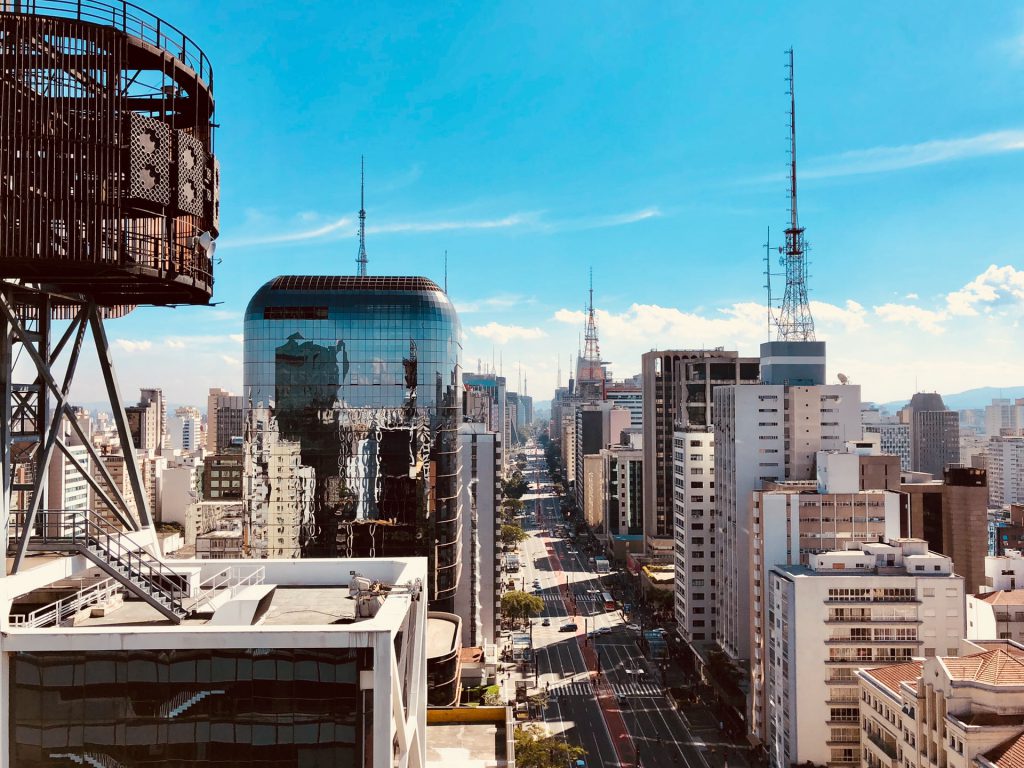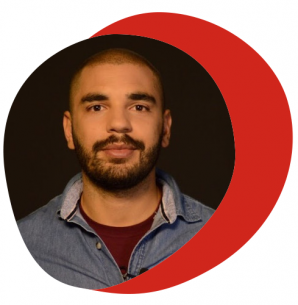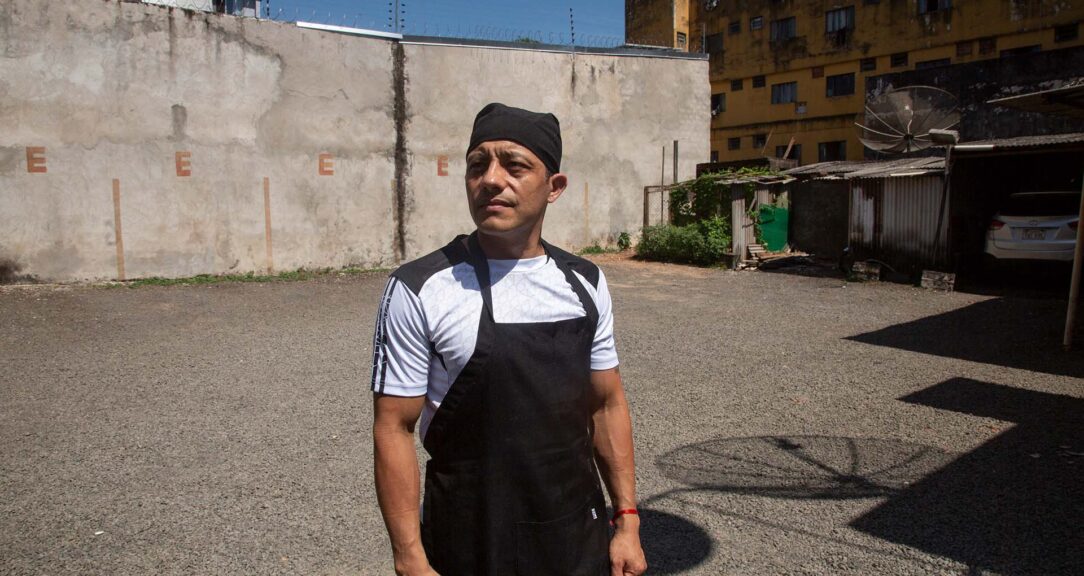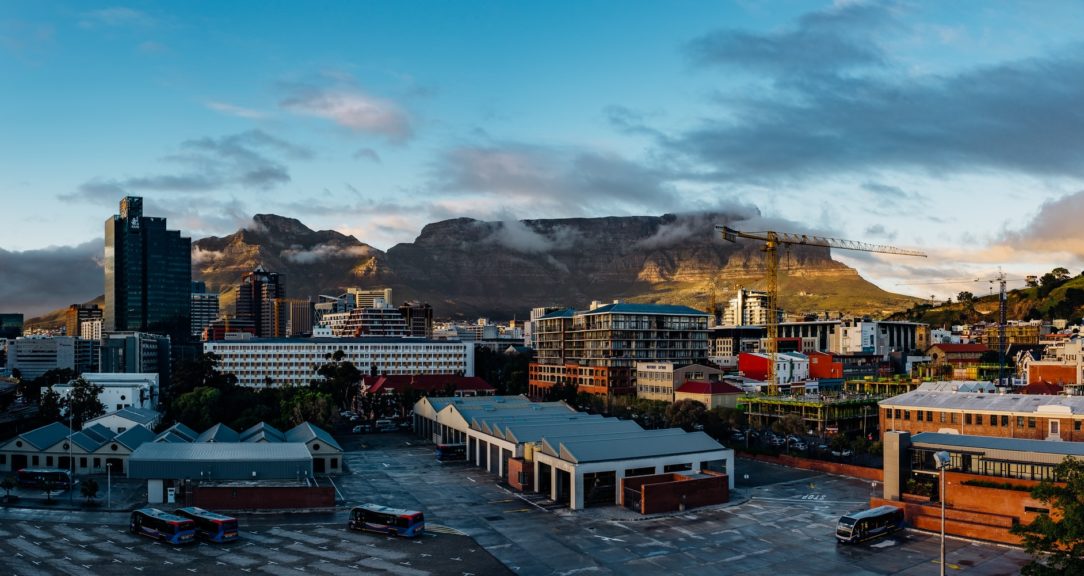São Paulo is a city built by immigrants. It is home to more than 12 million people from 70 different countries, and the mixed cultures create a cosmopolitan atmosphere. São Paulo shows you different Brazilian realities from each angle — gray high-rises stretch to the horizon, graffiti blankets downtown, and the enormous favelas sprawl in the suburbs.
São Paulo is the largest city in South America and Brazil’s vibrant financial center, accounting for more than a tenth of Brazil’s total GDP. Brazil has used eight different currencies since 1942; the current real (BRL) was introduced in 1994 to stabilize the economy after years of inflation.
Traditionally, Brazil has had a cash economy — it was common for people’s wages to be paid in cash, especially in the countryside. But in November 2020, Brazil’s Central Bank launched an instant digital payment system called Pix. It has changed how Brazilians do business: Already about 45% of adults and more than 5.5 million companies have used the system to send or receive money. We talked with six Paulistanos about their relationships with money and their first and future paychecks.
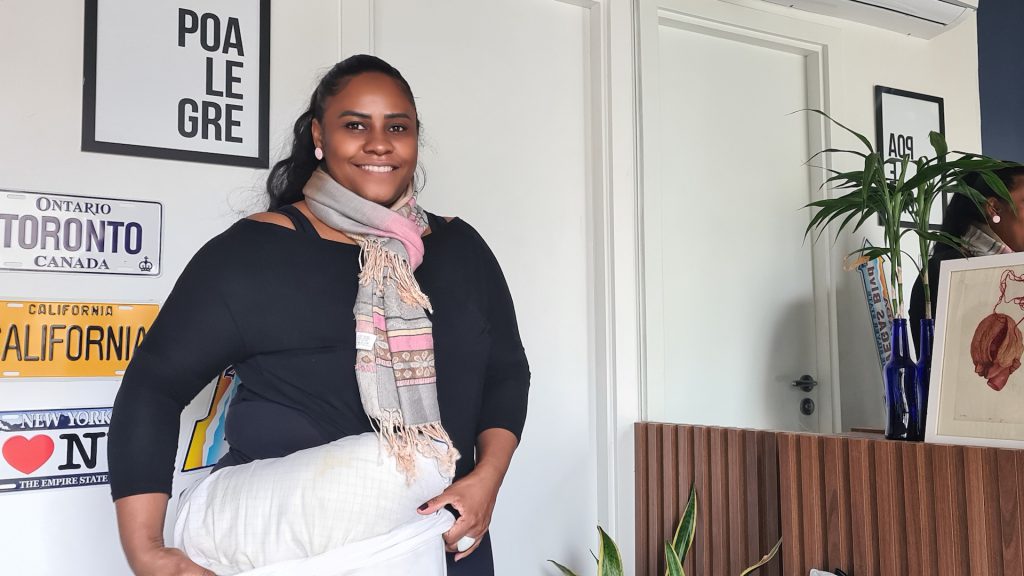
Patricia Gonçalves, 42
House cleaner
I was born here in São Paulo, in Patriarca in the eastern part of the city. During high school I had my first child; motherhood was almost like the diploma that I didn’t have. It made me more mature. With a baby to feed I didn’t think twice: I needed to look for my first job.
I started working as a babysitter for an American family, who lived in São Paulo. The feeling of earning my first salary was surreal: It was BRL 1,000. Having my own money and seeing it in my hands was a feeling of freedom. I was able to buy clothes for my son, put food on the table and help my mother build our house.
Over the years, I had three more children and I went through several jobs, working as a call center operator and a marketing assistant. At the end of the month, between buying food, paying the bills and rent, there was nothing left. That was when I decided to work as a cleaner on my own schedule.
I work in seven houses, each on a different day. I work much harder, but I have a decent income, more than BRL 3,000 every month.
Now I work in seven houses, each on a different day. I work much harder, but I have a decent income, more than BRL 3,000 every month. In the past year, my relationship with money changed. I don’t even touch bills anymore — all my income is digital. Everyone transfers me money via Pix, and in seconds it appears in my bank account.
During the pandemic, I lost half of my jobs. At first it was very difficult, and I had to choose between buying food for my children and paying my rent. But in 2021, things have improved. Gradually I am saving money to achieve my biggest dream: to build my own house. It’s not easy, but through saving and working hard, I’m sure I’ll make it.
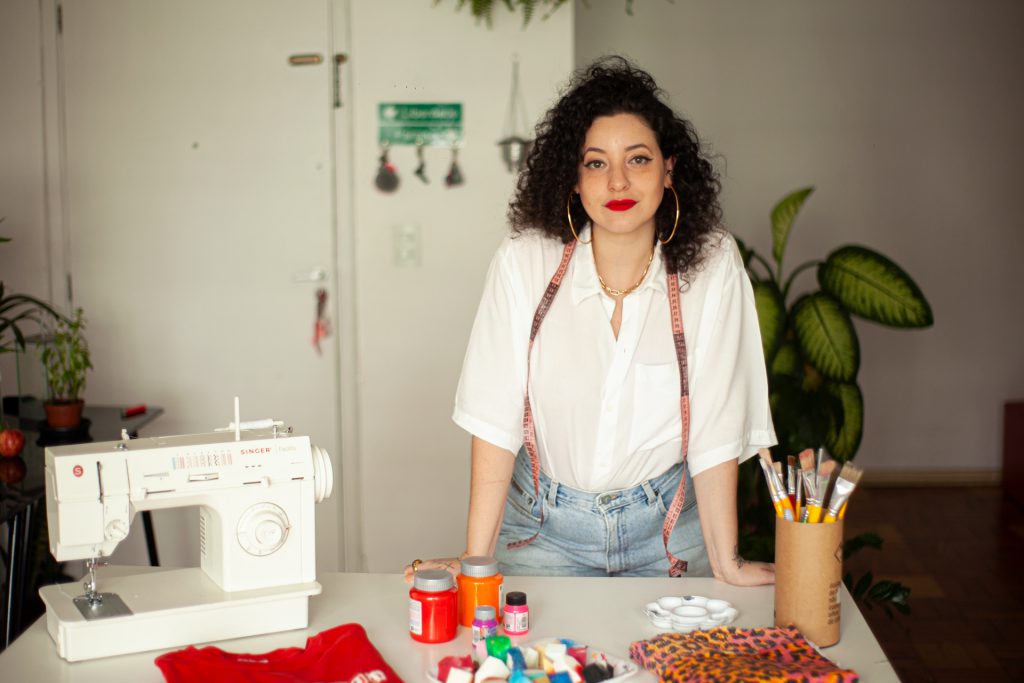
Juliana Ferrão, 30
Owner of Empodera T-Shirts
I’m from Camaquã, a tiny city located in Rio Grande do Sul, the southernmost state in Brazil. I graduated with a degree in fashion design — I wanted to create inclusive and casual fashion. In 2018, when I moved to São Paulo, I started printing T-shirts with political phrases for my friends and my sister.
At that time, it was not my main source of income. I was working as a pattern maker for a clothing brand. When I got my first paycheck, I was so excited that the first things I bought were a pair of earrings and a beautiful dress. When I started Empodera, I reinvested all my profit to buy more T-shirts and materials.
Women are expected to be creative, but they are not expected to manage their money well. I want to break these paradigms.
Women are expected to be creative, but they are not expected to manage their money well. I want to break these paradigms. When I create products for other women, I am learning from this process. Empodera grows, and I grow as a person too.
São Paulo is a place that values craftsmanship more than other cities in Brazil. Before the pandemic, fairs were a way to have contact with my clients and sell my T-shirts face to face. At my first fair I made BRL 800, and later my sales grew to BRL 3,000 per month.
During the pandemic, social media has become my main sales channel. I had to learn how to do it from scratch, set up my website and make my products visible. Today I receive more sales through digital platforms, and I manage all the finances online. I don’t remember the last time I took a money bill. It’s weird to think of money as paper.
Feeling motivated during this last year has been very difficult. My sales have dropped by 80% during the pandemic, so I need to build resilience. As a businesswoman, I understand the moment we are going through — people in Brazil are prioritizing survival.
So I took the time to think about my next steps. After the pandemic, I want to reinvent my brand to expand into the home decor market to reach more people and increase my income.
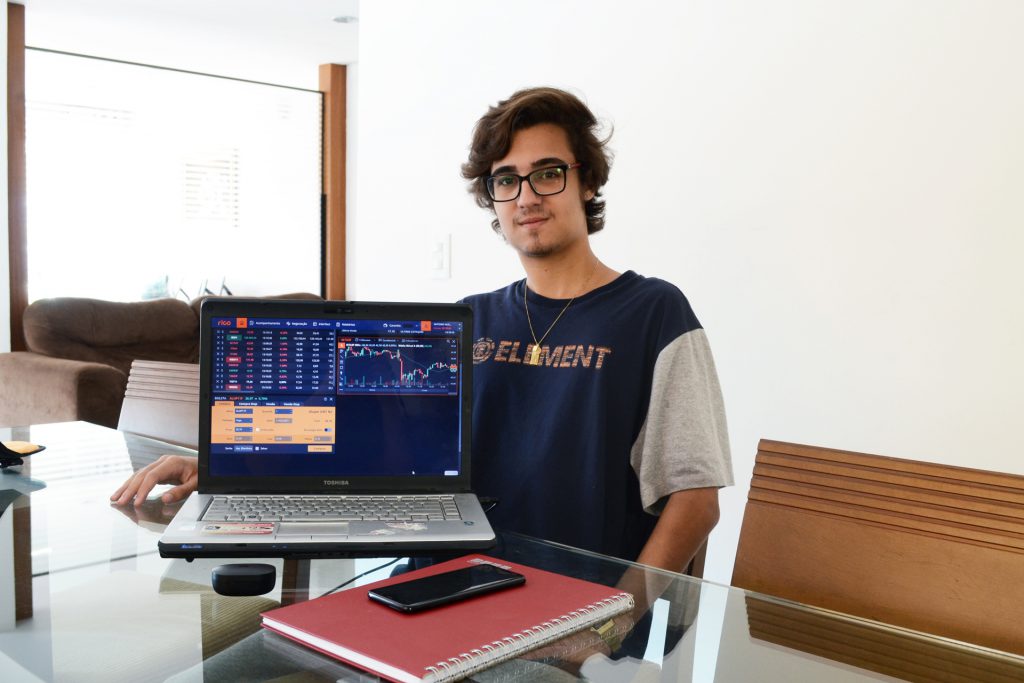
Antonio Caviglia, 17
University student
I am in the first semester of studying computer science and working as an IT intern at the Oswaldo Cruz University. I’ve long been interested in investing, and during the pandemic, I decided to start saving and investing some of the money I was earning, about BRL 400 per month. I talked to people and researched strategies on YouTube.
I started with low-risk investments, but now I am investing in stocks of big Brazilian companies. People see investment as something exclusive to rich people, but I believe you can start even with a small amount of money. It’s all online; I do all the transactions through my computer.
My dad looked at me like I was ET when I told him I bought my first stock. Now they realize that I am on the right path.
At first, my parents thought it was crazy seeing their child risking part of his earnings in investments. My dad looked at me like I was ET when I told him I bought my first stock. Now they realize that I am on the right path. I always share some videos with them explaining how to invest. It was an incredible day when they started saving, too.
The decisions I make today when I’m young will reflect who I am going to be tomorrow. And making the decision to start my relationship with money was very important. At the age of 15, I started working as an apprentice at the university and earned my first paycheck. It was a surreal feeling. I received BRL 171, and I remember I bought lunch and I saved BRL 50. The rest of the money I spent going out with my friends over the weekend.
The other day, talking with friends, I realized that I haven’t touched paper money for about six months. I think Pix is just the beginning of how we deal with money digitally.
You need to think about the future. A year ago, I tried to save 30% of what I earned, and I gradually increased this to 40%. I know that money is not everything, but it will help me get where I want to be.
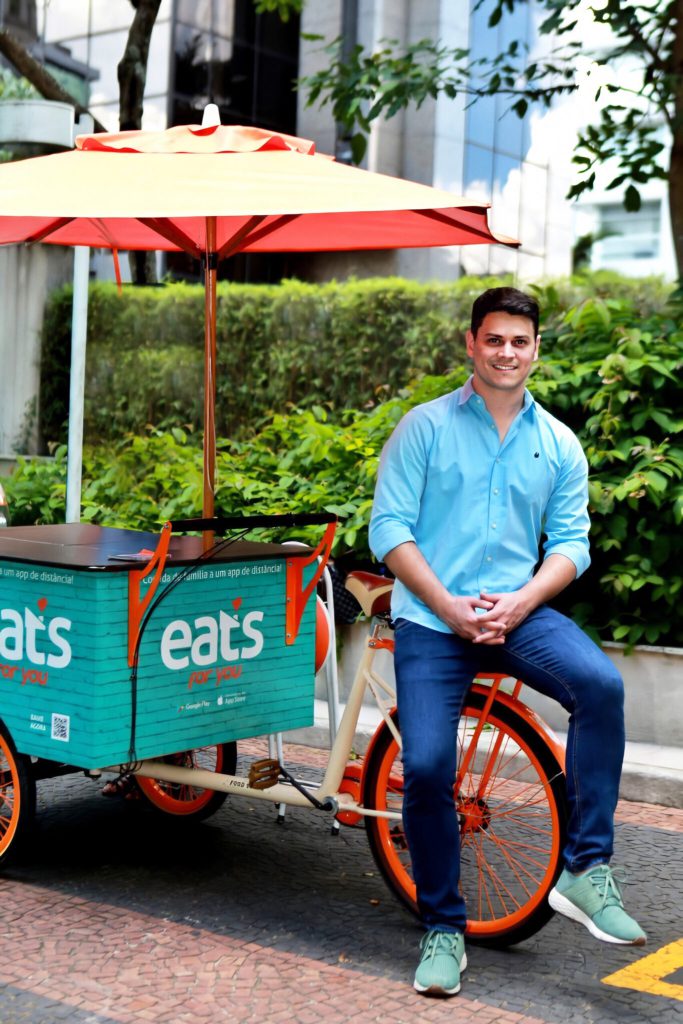
Nelson Andreatta, 40
Owner of Eats for You
When I graduated from college with a degree in PR and advertising, I wanted to explore my entrepreneurial side. It’s a family tradition: My mother taught me to love the business world.
She worked as a cleaner and then opened a beauty salon to make a better life for us in Campo Grande in the southwest part of Brazil. The first experience I had with money was when I was 11 years old. I had a party for friends. I rented the space, bought drinks and charged for tickets. It was a success — I made a profit. I fell in love with this entrepreneurial world.
The first experience I had with money was when I was 11 years old. I had a party for friends. I rented the space, bought drinks and charged for tickets. It was a success — I made a profit.
A few years ago, I went to lunch with a coworker from the publicity agency we worked at, and I really missed my mother’s food. I looked out the window at the neighborhood, and I imagined how many people were making home-cooked meals right at that moment. I wondered if I could buy my neighbors’ food and share their locations on a map.
And that’s how Eats For You was born in 2016. It was at the height of a serious financial crisis in Brazil, with millions of unemployed people. We wanted to solve two problems: generating income for partner cooks and feeding people at an affordable price. We don’t want to have a million employees, but support entrepreneurs who grow with us.
Before the pandemic, the business was going very well. But then Covid-19 halted everything. The streets emptied, and the customers disappeared. Our sales dropped by 90%.
We had a moral duty to the more than 4,000 cooks who depended on Eats For You for income. So we decided to create a food bank. Our customers can use the app to buy meals for people living on the streets of São Paulo. We used that income to feed the hungry and also to maintain the income for our cooks and delivery drivers.
As of May 2021, we’ve donated 30,000 meals, and I haven’t taken a paycheck during this time. Financially, the company has made no profit, but we have venture capital funding. Being able to generate income for people who really need it in a country that is built by people who never give up is very motivating. Entrepreneurs do not wait for the ideal moment. We create, build and remake ourselves.
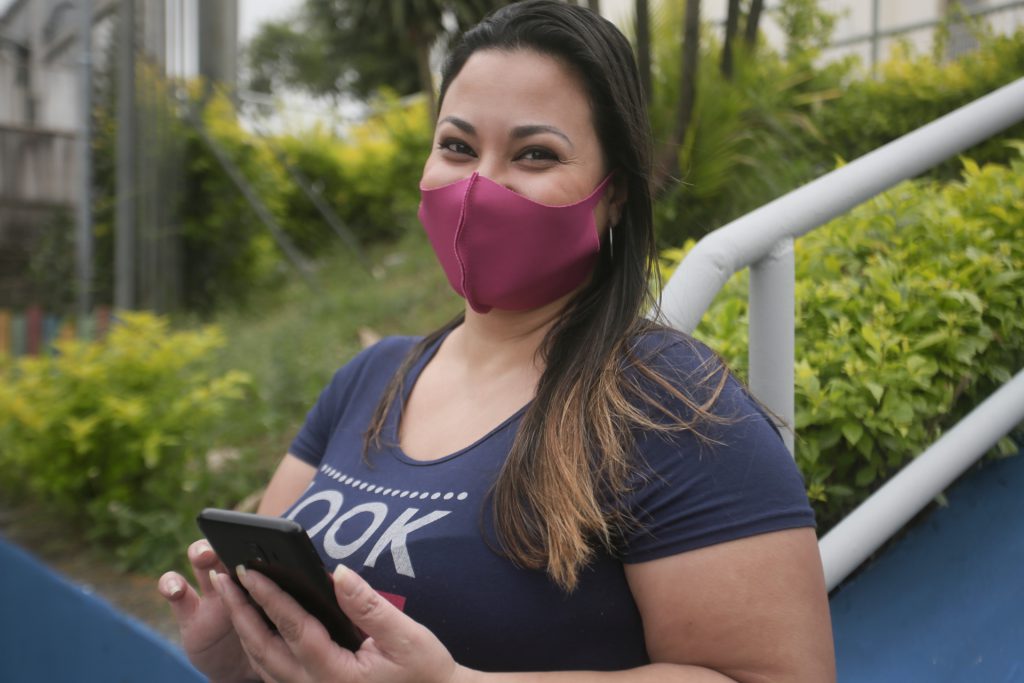
Karolly Ludger, 41
Journalist
I am passionate about journalism. For years I worked on political campaigns and in press offices in São Paulo. I have always liked to spend money. Since I was very young, when I first was paid as a journalism intern, I spent all my money on the cinema and theaters. I love being able to go out with my 13-year-old son, share cultural activities and new experiences. I don’t spend on clothes or material things, but on experiences we can keep as good memories.
But over the course of my professional career, my spending got out of control. I don’t use cash, and my credit card hid how much I had available in my bank account. Swiping my card is easy, and little by little, I got into debt.
Today I control all my earnings on my cell phone. Every transaction I make, I write it down.
I put off paying some bills, and my financial life became chaotic. I had to sell my car in order to pay off debts. And then when the pandemic happened, I lost my job as a presenter, and my debt grew. It was a difficult time, because São Paulo is an expensive city to live in, especially with a child.
This year I managed to find work at a PR office, representing some brands. Getting paid again made me feel like I had regained control of my life. I decided to control my spending better and make money work for me, not the other way around.
I paid all my debts and started to realize that I needed to save. Today I control all my earnings on my cell phone. Every transaction I make, I write it down. I am already saving part of my salary, BRL 1,000 every month, to put towards a house for my family.
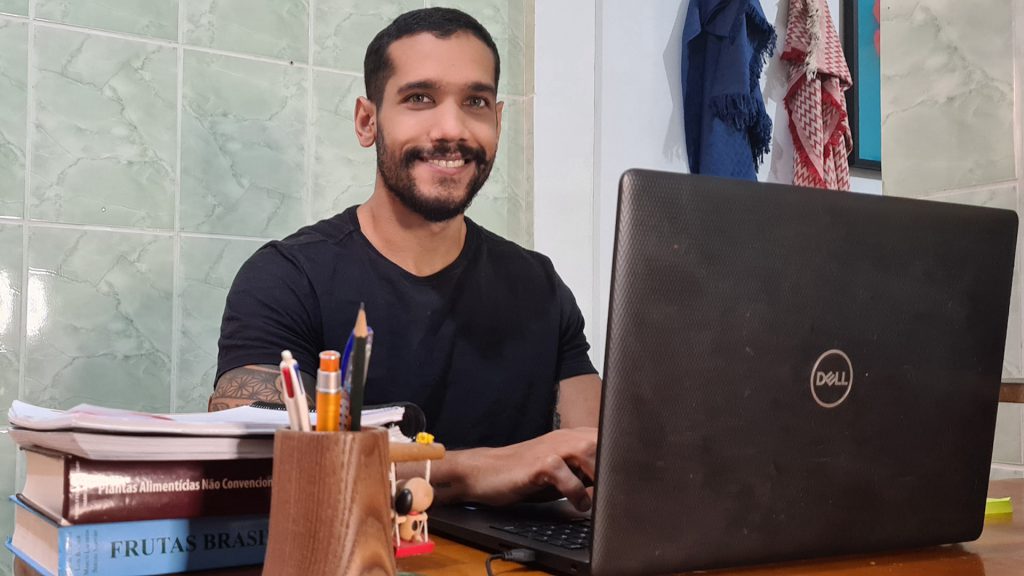
Hector Barros, 32
Biology teacher
When I graduated from school, I didn’t know what I wanted to do with my life. My first job was as a waiter in a restaurant after high school. My family was poor, and we only had enough money for the essentials: food and rent. I worked on weekends so I could have money for myself, earning BRL 150 a day. I remember my first payday. I was so happy. I went out to have a snack with my friends and go to the cinema.
When I saw my brother pass the university entrance exams, it inspired me to follow the same path. I decided to study biology and be a teacher.
Being a teacher in Brazil is not easy. I say it is an act of resistance. We are professionals who shape the future of the country, but we are not financially valued and we do not have the necessary conditions to teach with quality. I often use my own money to buy materials for students because the school has few resources.
Living in São Paulo is very expensive. As a public teacher, I earn just over BRL 2,000 a month, about double the minimum wage. I struggle to make my money last the month after paying rent and bills and buying food. I hope to get a better paid position, but for that I need better qualifications. I am working on a Ph.D. at the University of São Paulo. It is very exhausting.
The pandemic changed everything. My sofa became my classroom.
The pandemic changed everything. My sofa became my classroom. Light, water and internet, everything costs more because I’m spending more time at home. My life is balancing spending between debit and credit cards; I use almost no paper money. I recently managed to achieve one of my goals: to purchase my apartment. I hope that finishing my Ph.D. will allow me to teach at a university and have a better income.
Read more
Sign up to keep up to date with ReThink Q.
